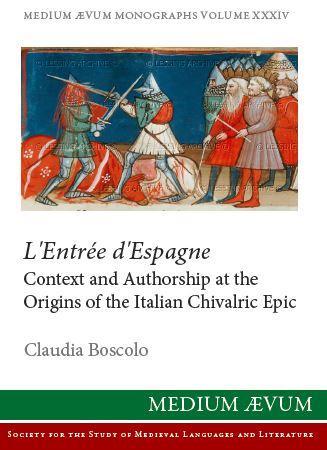L’Entrée d’Espagne is a fourteenth century Franco-Italian poem, probably composed by its unknown Paduan author at the early Visconti court, which defined a literary trend of the Renaissance; by transforming a typical epic matter – Charlemagne’s conquest of Spain – into a chivalric poem, it successfully hybridized epic with classical sources, references to the Breton romances, and European conceptions (or misconceptions) of medieval Islam. This study traces the major influences upon this important work of art, including the backdrop of early fourteenth-century Northern Italian politics. It examines the gradual weakening of the figure of Charlemagne in the poem as a reflection, above all, of the diplomatic and military tensions between France and the early rulers of Milan.

